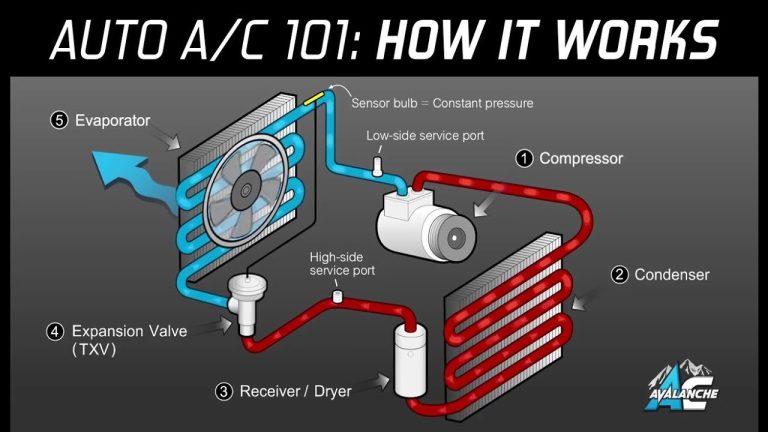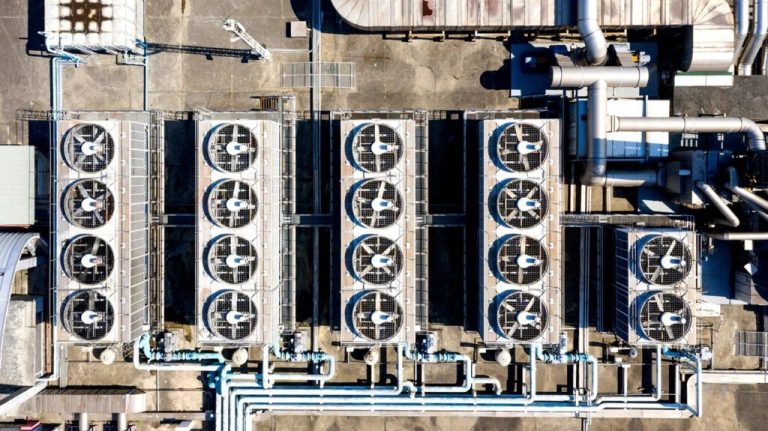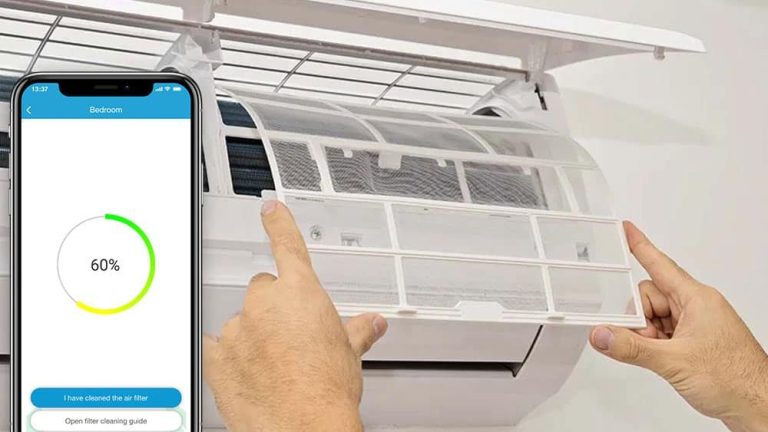Does Air Conditioner Waste Gas? Find Out The Truth Behind Air Conditioning Efficiency
No, air conditioners do not waste gas. Air conditioners cool the air by using electricity to remove heat and humidity. They do not consume or produce gas in the process.
Are you a homeowner or car owner who frequently uses air conditioners? If so, you may have wondered, “Does an air conditioner waste gas?” As energy efficiency and cost savings become increasingly important, discovering ways to reduce waste and save money is on everyone’s mind. High energy bills, environmental concerns, and the need for practical solutions are common problems faced by individuals like you.
Understanding how your air conditioner impacts gas consumption can help you make informed choices, not only for your wallet but also for the environment. In this blog article, we will delve into the question of whether or not air conditioners waste gas.
We will explore the factors that contribute to gas usage, debunk common misconceptions, and provide practical tips for optimizing energy efficiency in your HVAC system. But before we dive in, let’s consider the implications of air conditioner gas waste. Did you know that inefficient cooling can account for a significant portion of your energy bill? By tackling this issue head-on, you can potentially save a substantial amount of money each year.
So, if you’re ready to discover the truth about air conditioner gas waste and learn how you can maximize efficiency in your home or car, continue reading. You’ll gain valuable insights and practical solutions to help you lower your energy consumption and reduce your environmental impact. Take control of your energy usage and join us on this journey to understand and conquer air conditioner gas waste.
How Air Conditioners Impact Gas Consumption
Before we dive into the question of whether or not air conditioners waste gas, let’s first understand how they impact gas consumption.
The Role of Refrigerants
Air conditioners use refrigerants to produce cool air. These refrigerants are circulated through a closed system, absorbing heat from the indoor air and releasing it outside. The process relies on the compression and expansion of the refrigerant, which consumes energy.
While refrigerants are vital for the cooling process, they do not directly consume gas. Instead, they require electricity to operate the compressor that facilitates the circulation of the refrigerant.
Energy Efficiency Ratings
When evaluating the energy consumption of an air conditioner, it’s essential to consider its energy efficiency rating. Air conditioners with higher efficiency ratings use less energy to produce the same amount of cooling compared to units with lower ratings.
The Seasonal Energy Efficiency Ratio (SEER) is a metric that measures an air conditioner’s efficiency. The higher the SEER rating, the more energy-efficient the unit is, resulting in lower utility bills and reduced gas consumption.
Size of the Air Conditioner
The size of an air conditioner also plays a role in its gas consumption. A unit that is too large for the space it is cooling will cycle on and off more frequently, leading to energy waste and increased gas usage.
Conversely, an undersized unit may struggle to cool the space adequately, forcing it to work harder and consume more energy. It’s crucial to choose the right-sized air conditioner for optimal energy efficiency and gas savings.
Debunking Common Misconceptions
Now that we understand the basic factors that impact gas consumption, let’s debunk some common misconceptions about air conditioners and their gas usage.
Air Conditioners Do Not Burn Gas
One prevailing myth is that air conditioners burn gas like a car engine. This misconception may stem from the fact that some air conditioners can be powered by natural gas or propane in certain circumstances.
However, the vast majority of residential and automotive air conditioning systems rely on electricity as their primary energy source. They do not burn gas directly in the cooling process.
Electricity Generation and Gas Consumption
Although air conditioners run on electricity, it’s important to note that the generation of electricity can have a connection to gas consumption. Many power plants rely on natural gas as a fuel source to generate electricity.
Therefore, when you use an air conditioner that consumes a significant amount of electricity, you indirectly contribute to gas consumption at the power plant. However, it’s crucial to focus on energy efficiency and reducing overall electricity usage to minimize the environmental impact.
Efficient Air Conditioners Save Money
Another misconception is that air conditioners with higher energy efficiency ratings are more expensive and not worth the investment. In reality, investing in an energy-efficient air conditioner can result in significant savings over time.
While the upfront cost may be slightly higher, the long-term energy savings can outweigh the initial investment. Energy-efficient air conditioners consume less gas and reduce your utility bills, providing financial benefits and a reduced environmental footprint.
Tips for Optimizing Energy Efficiency
Now that we’ve dispelled some misconceptions, let’s explore practical tips for optimizing energy efficiency in your air conditioning system.
Regular Maintenance
Maintaining your air conditioner is crucial for its efficient operation. Regularly clean or replace air filters to ensure proper airflow and remove debris that can hinder cooling performance.
Additionally, schedule professional maintenance at least once a year to inspect and tune-up your air conditioning system. A well-maintained unit operates more efficiently, reducing gas consumption and increasing its lifespan.
Proper Thermostat Settings
Using your thermostat wisely can significantly impact energy efficiency. Set the temperature to the highest comfortable level in the summer and use programmable thermostats to adjust settings automatically based on your schedule.
Avoid setting the thermostat at extreme temperatures, as it can lead to excessive cooling, energy waste, and increased gas consumption. Optimize your thermostat settings to balance comfort and energy savings.
Utilize Natural Ventilation
Take advantage of natural ventilation whenever possible. Open windows and doors during cooler evenings or early mornings to allow fresh air to circulate, reducing the need for air conditioning.
In areas with high humidity, consider using dehumidifiers instead of air conditioners when the weather permits. Lowering humidity levels can make you feel more comfortable at higher temperatures and reduce the need for excessive cooling.
In conclusion, air conditioners do not directly waste gas. Their operation relies on electricity, which may indirectly contribute to gas consumption at power plants. Understanding the factors that impact energy efficiency, such as refrigerants, unit size, and maintenance, is essential for optimizing gas usage.
By following the tips provided and investing in energy-efficient air conditioning systems, you can reduce gas consumption, lower utility bills, and minimize your environmental impact. Take control of your energy usage and make informed choices to maximize efficiency in your home or car.
10 Driving Hacks That'll Make You Spend Less On Gas
Frequently Asked Questions (FAQ)
Does an air conditioner waste gas?
Is an air conditioner energy-efficient?
Does running an air conditioner increase electric bills?
How often should an air conditioner be serviced?
Can an air conditioner be used as a heater?
Final Summary: The Truth About Air Conditioners and Gas Consumption
In conclusion, the question of whether air conditioners waste gas has been thoroughly explored, and the answer is no. Air conditioners do not directly burn gas in the cooling process.
They rely on electricity, which may have a connection to gas consumption in power plants. However, it is important to focus on energy efficiency and reducing overall electricity usage to minimize the environmental impact.
Factors that impact gas consumption in air conditioners include the use of refrigerants, the size of the unit, and regular maintenance. Refrigerants do not directly consume gas but require electricity to operate the compressor. Choosing the right-sized air conditioner is crucial to avoid energy waste, and regular maintenance ensures efficient operation.
Debunking common misconceptions, it is important to note that investing in energy-efficient air conditioners can result in significant savings over time. While the upfront cost may be higher, the long-term energy savings outweigh the initial investment. Energy-efficient air conditioners consume less gas, reduce utility bills, and have a reduced environmental footprint.






